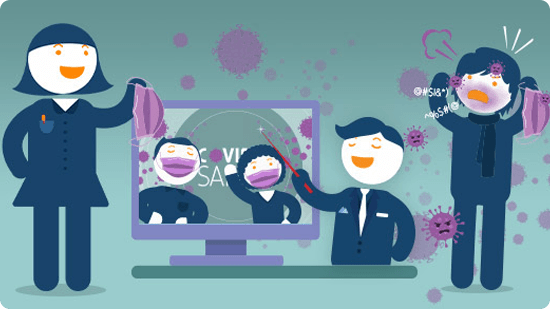Email is an essential communication tool in today’s digital and fast-paced world, so it’s crucial to know how to write an effective email. Whether you’re writing a professional email to a colleague, or a personal email to a friend, the way you write an email says a lot about you and can have a significant impact on the way in which your message is received. In this article, we’ll identify 10 easy tips for writing emails.
#1 – Be Prompt & Concise
If you’re responding to an email you’ve received, you should action this as promptly as possible so as not to leave the other person waiting for too long. Your email should also be short and sweet, getting to the point and covering all bases before your reader loses interest.
#2 – Write Effective Subjects
Always send emails with a subject and use a clear subject line. The topic of your email should be clearly conveyed in the subject to give your recipient an idea of what your email’s about before they even open it. This is particularly important if the person you’re emailing is likely to receive multiple emails so they can quickly identify which emails they should prioritise.
#3 – Addressing Your Recipient
Address the recipient correctly, using their proper title and name. It should be noted that email is a personal form of communication, so outdated addresses such as “Dear Sir” should be avoided. These days, this sounds more like an unfriendly spam email. Instead, open your email with the recipient’s name, position title, or department.
#4 – Watch Your Tone
If you’re writing a professional email to a colleague or a client, be sure to use a professional tone. Avoid using slang or casual language, and remain courteous and respectful always. Messages can sometimes be misinterpreted, so it’s important to be positive and clear in your emails. And don’t forget that personal touch.
#5 – Always Proofread
Before hitting send, always proofread your email. Check for typos, grammar mistakes, and awkward sentences to ensure you come across as the professional and competent person that you are. Don’t rush your proofing – stepping away from your emails and returning after a short break helps pick up mistakes you may have otherwise overlooked.
#6 – Don’t Forget Attachments
Sending attachments is a common practice, especially for professional people. Remember, opening large files can be time consuming and can result in embarrassing data bills, particularly if the recipient is on a wireless network or travelling overseas. Consider using cloud docs to allow all parties to open the document easily and make changes where necessary.
#7 – Utilise the P.S.
Never underestimate the power of the P.S. – a commonly overlooked feature of emails. Refocus the attention of the reader, or add a secondary piece of information using P.S. at the end of your email.
#8 – Stand Out Signatures
Your email signature says a lot about you, so we recommend putting some extra thought into yours. Your signature should include important details, alternative contact information, and your company’s branding. When it doubt, keep it simple, but keep it relevant.
#9 – Grammar is Crucial
As a professional person, your emails should be literate, clear, and correct. Poor punctuation and incorrect grammar are sure-fire ways of damaging your professional reputation and image. When writing an email, you should use proper capitalisation, punctuation, spelling, and grammar. This is where proofing also comes in handy. If you’re unsure, ask a colleague for assistance.
#10 – When to Use ‘High Priority’
When sending high priority emails it can be tempting to use the High Priority button. However, this should not be overused. There are other ways to get your recipient’s attention as mentioned in #2 – Write Effective Subjects. Remember, if the message is important, oftentimes that’s enough to get the reader’s attention.
In conclusion, writing effective and professional emails is a skill that can be achieved by anyone. Remember, take the time to think carefully about your message, use a relevant subject line, address the recipient correctly, use personal yet professional language, and proofread before sending. By following these tips, your emails will be clearer, more concise, and ultimately, professional.
To learn more about writing emails, or to educate your employees on the importance of writing professional emails in the workplace, visit canity.com.
Watch More Email Skills Videos
Canity is an online training platform offering education on various topics such as Email Skills, The Art of Small Talk, Safety at Work, Empathy in Customer Service, Time Management, and more. In addition to making training quick and easy for you and your team, Canity is fun, engaging, and simple to understand, with captivating, animated videos showcasing vital training in easy to digest, bite-sized pieces.
All training modules are delivered as a series of microlearning video lessons, each no more than 5 minutes in length. Each training finishes up with an interactive quiz to help consolidate your learning, as well as supporting eBooks and other useful downloadable resources.
Explore the benefits of professional email writing for yourself and or your workplace, as well as other topics. Check out the training modules available through Canity by visiting our training library.













